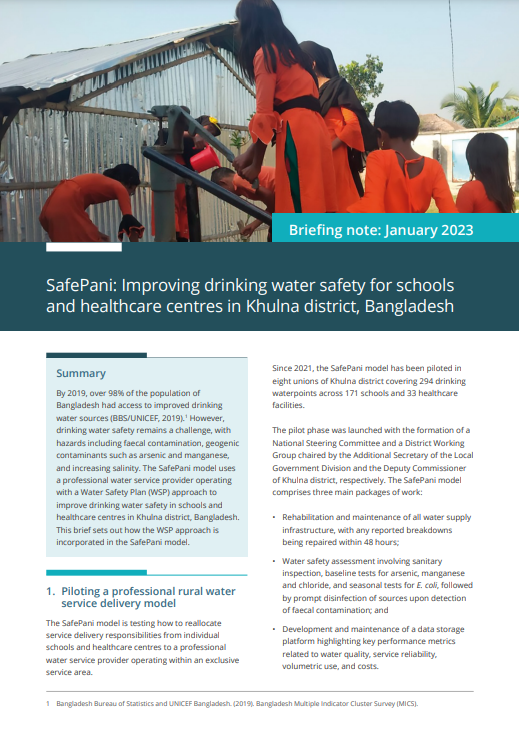By 2019, over 98% of the population of Bangladesh had access to improved drinking water sources (BBS/UNICEF, 2019).1 However, drinking water safety remains a challenge, with hazards including faecal contamination, geogenic contaminants such as arsenic and manganese, and increasing salinity. The SafePani model uses a professional water service provider operating with a Water Safety Plan (WSP) approach to improve drinking water safety in schools and healthcare centres in Khulna district, Bangladesh. This brief sets out how the WSP approach is incorporated in the SafePani model.

SafePani: Improving drinking water safety for schools and healthcare centres in Khulna district, Bangladesh
2023 | Bangladesh | Country | Institutions | Policy brief | Research theme | Resource type | Water Quality | Year
